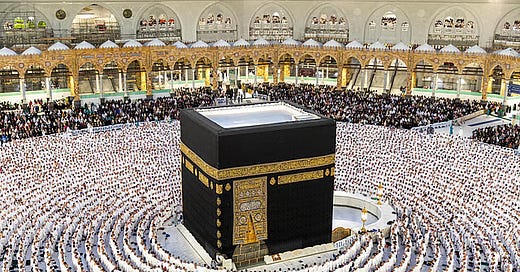Can the Muhammadi Transparency Assurance Law protect and promote Global Peace?
Does the World Community need Moral and Economic Unity?
The raised questions touch on profound themes concerning morality, spirituality, governance, and societal development within the Muslim World. Now, we need to explore these constructive ideas in depth.
Does the Muslim World need the Muhammadi Transparency Assurance Law for its Renaissance?
The Muhammadi Transparency Assurance Law is presented as a framework to promote honesty, ethical conduct, and accountability—values that are critical to societal progress and renaissance. Many believe that transparency—both moral and economic—is essential for building trust, reducing corruption, and fostering sustainable development.
In the context of the Muslim World, where governance challenges and issues of corruption have historically hindered progress, such a law could serve as a guiding principle. It emphasises integrity not just as a societal ideal but as a practical necessity for renaissance—an awakening or revival—of the community’s moral and material prosperity.
Would it be necessary?
It could certainly play a pivotal role by institutionalising transparency, making it an integral part of governance and societal morals. However, its effectiveness would depend on how widely its principles are embraced, especially the spiritual foundations that underpin societal ethics.
Is the absence of piety [Taqwaa] the real issue of the Muslim World?
Taqwaa [Piety], often translated as piety or God-consciousness, is central to Islamic Ethics. Its absence can lead to corruption, injustice, and moral decline. Without Taqwaa, societal systems may lack the moral compass needed to uphold justice and honesty, thereby fostering environments where unethical practices thrive.
But is it the only issue?
Most analyses suggest that while Taqwaa is fundamental, the complexities of societal challenges in the Muslim World also involve economic disparities, political instability, educational deficits, and external influences. Therefore, Taqwaa acts as a moral foundation that supports these domains, but addressing material and institutional factors is equally critical.
How does the Muhammadi Transparency Assurance Law define Moral and Economic Transparency?
In general, transparency involves openness, accountability, and clarity in actions and decisions.
Moral Transparency might encompass honesty in leadership, integrity in dealings, and adherence to Islamic ethical principles.
Economic Transparency involves clear financial disclosures, fair business practices, and responsible resource management.
In legal terms, this could mean laws requiring public officials and institutions to disclose information, ensuring that societal actors act under Islamic ethics and laws, fostering trust and accountability.
Conclusion: The Interplay of Piety and Transparency
The most important point—that Taqwaa [Piety] promotes and protects Moral and Economic Transparency—resonates deeply with Islamic Teachings. Spiritual consciousness engenders a sense of accountability to Allah Almighty, which naturally extends to ethical conduct in society.
Ultimately, achieving a Societal Renaissance in the Muslim World requires a holistic approach:
Spiritual Reforms, rooted in Taqwaa, cultivate integrity and righteousness.
Institutional Reforms, such as laws like the Muhammadi Transparency Assurance Law, are needed to enforce transparency and accountability.
Socioeconomic Development is needed to address inequalities and elevate living standards.
In essence, spirituality underpins the moral fabric necessary for genuine transparency, and transparency, in turn, sustains societal trust and progress. Both are intertwined, and fostering one supports the growth of the other for a just, prosperous Muslim Society.
This article has been written and compiled by Muhammad Fazal Ur Rehman Siddiqui.
Karachi - Pakistan
25 June 2025




Taqwa and spirituality are key for any society uplift